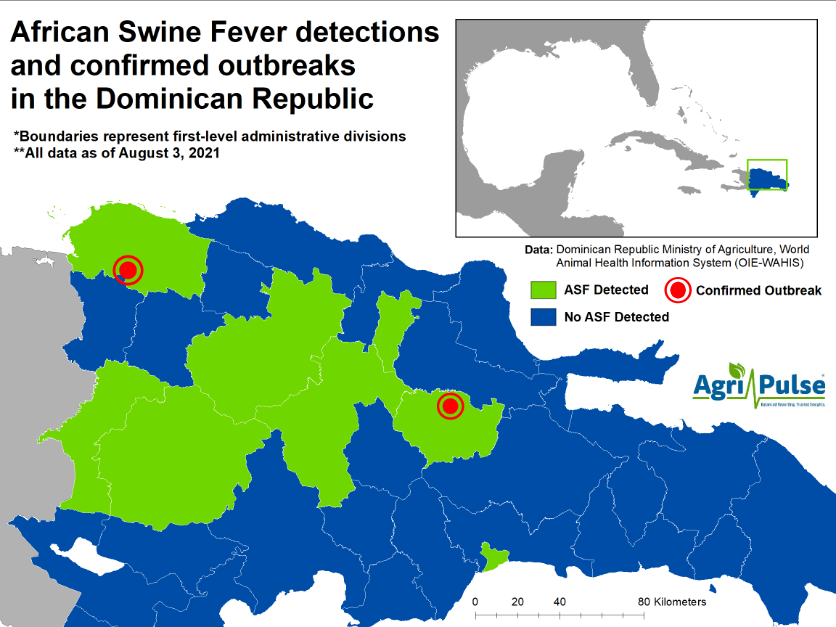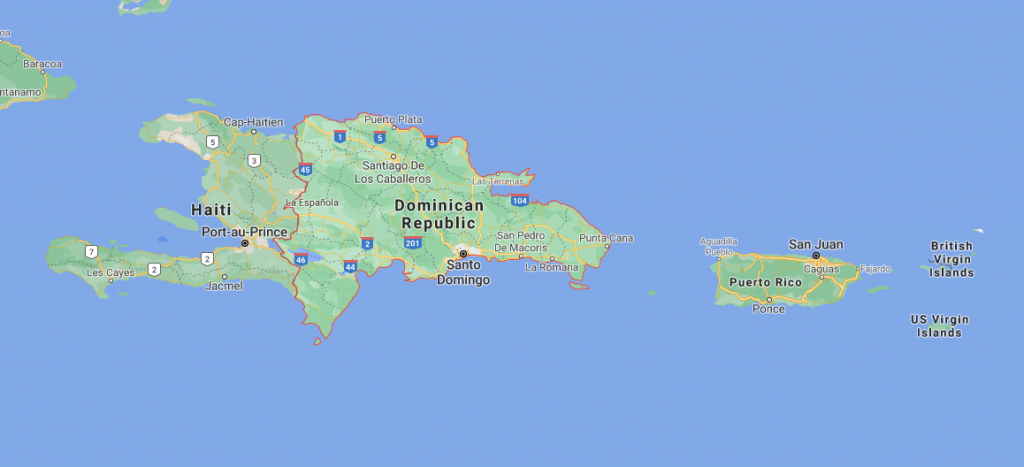ASF Update from Dominican Republic
As you have read, ASF has recently been confirmed in the Dominican Republic. Historically, the ASF virus has been limited to sub‐Saharan countries in Africa. However, in the last two decades, the virus started moving through eastern Europe, Asia, western Europe and now it has made its way to the western hemisphere. This is not the first time the virus has been present on the western hemisphere. Indeed, it has already been in the Americas before, specifically in the Caribbean and in South America. The virus was detected in Cuba in 1971, then in Brazil (April 1978), followed by detections in both the Dominican Republic and Haiti (July1978), and then for the second time in Cuba in 1980. Questions related to how the virus may have entered these countries still remain; however, in those cases infected pork scraps from international flights originating from Europe have been suggested as the likely source of the virus. Fortunately, in all these outbreaks, the virus was eradicated from these countries, and it has not been detected ever again…until July 2021. (source MSHMP 2021.22.05)
Key information:
-
- 11 providences positive
- First infected providence
- Borders Haiti and is not on the ocean (ship swill feeding risk). This may suggest the virus originated in Haiti or at high risk for becoming infected.
- May 13th was the earliest positive sample
- The strain is a pathogenic strain, similar to the current strain moving through SE Asia
- There are 1.8M pigs in the country

Dr. Harry Snelson, Executive Director of the American Association of Swine Veterinarians, participated in a call with the USDA on the recent African swine fever outbreak in the Dominican Republic. Dr. Jack Shere is heading up the response from the USDA and provided some background and described USDA’s current thoughts and actions. The following are Dr. Snelson’s notes from this call.
-
- USDA receives quarterly samples from the Dominican Republic (DR), which are banked and sent to USDA for processing.
- DR expressed concern over 12 samples recently submitted and included tissues due to elevated mortality. They requested those samples be run first.
- Samples include suspect tissues, blood (for both PCR and ELISA testing).
- Those 12 samples tested positive for ASF in two provinces dated July 7, 2021
- FADDL sequenced as Georgia 07 but is doing additional sequencing to further identify.
- Subsequent testing of the 319 samples showed 37 positives in nine additional provinces.
- The earliest positive was dated May 13.
- It originated from a province in south central DR bordering Haiti (note: this is an inland province not associated with a port)
- USDA is setting up a lab in DR.
- Sending staff to set up the lab.
- Will do PCR testing.
- Positive samples will be sent to Plum Island for confirmation.
- Haiti has now asked for testing assistance.
- Four positive DR provinces border Haiti.
- DR assumes that the entry was through swill feeding originating from a ship.
- Puerto Rico (PR) is required to incinerate ship swill as done in the US.
- Feral swine eradication in rural areas “would be a big project.”
- DR and Haiti are positive for CSF and thus do not export pigs or pork products to the U.S. or Puerto Rico.
- USDA receives quarterly samples from the Dominican Republic (DR), which are banked and sent to USDA for processing.

The value of regionalization recognition by our trading partners has become an important part of the discussion again as Puerto Rico is a territory of the US. An introduction there could be recognized as an infection in the US and restrict trading with our global partners.
We will keep you informed as we learn more.
Sincerely,
Aaron Lower, DVM
Carthage Veterinary Service, Ltd.
